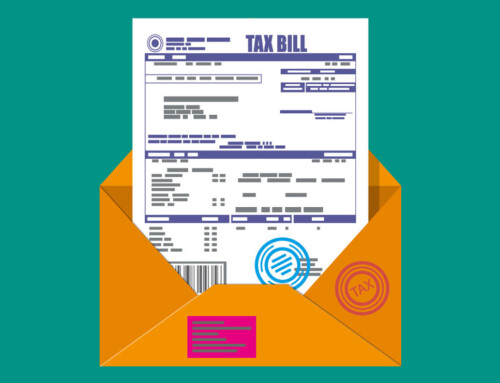Contents
Embarking on the journey to become a paralegal is a praiseworthy decision, full of potential for personal and professional development. You can find more information about the responsibilities of a paralegal in a law firm in our other blog post. Whether you’re fascinated by the legal intricacies of the judicial system or aspire to be a valuable asset in legal proceedings, the following guide outlines the crucial steps to becoming a paralegal.
Paralegal Certification Programs and Legal Assistant Training
Becoming a competent and skilled paralegal requires obtaining a paralegal education, which involves a combination of theoretical knowledge and practical application. It is crucial to seek out accredited institutions that offer specialized courses and training programs tailored to meet your specific career goals to excel in this profession. By doing so, you can acquire the necessary skills and expertise needed to succeed in the paralegal industry.
Navigating the Paralegal Education Landscape
Obtaining a paralegal education that includes theoretical knowledge and practical application is essential to become a competent and skilled paralegal. To excel in this field, seeking accredited institutions that offer specialized courses and training programs tailored to your specific career goals is crucial. By doing so, you can acquire the necessary skills and expertise required to succeed in the paralegal industry.
Mapping Out the Paralegal Career Path
Starting on the paralegal career path involves strategic planning and continuous learning. As you progress, you’ll encounter various branches within the legal field, each presenting unique challenges and opportunities. Identifying your interests and specialization will help you carve out a fulfilling career trajectory.
Crucial Paralegal Job Requirements and Skills
Paralegal job requirements often demand specific paralegal skills. Besides the previously mentioned skills, paralegals should be proficient in software and technology applications used in the legal field. They may also need expertise in specific law areas, such as immigration, intellectual property, or corporate law. Other essential skills include the ability to work well under pressure, adapt to changing circumstances, and maintain confidentiality. Overall, the role of a paralegal necessitates a unique blend of technical and interpersonal skills indispensable to supporting attorneys and law firms in the legal industry.
Unlocking Paralegal Duties and Responsibilities
Paralegal duties refer to the tasks and responsibilities that a paralegal is expected to perform while working in a legal setting. These paralegal job duties can range from conducting legal research, drafting legal documents, assisting with trial preparation, and maintaining client files. As a paralegal, one must be able to handle a wide range of tasks with accuracy, efficiency, and attention to detail. Therefore, one’s ability to carry out paralegal duties effectively is crucial to the success of any legal organization.
How to Start a Career in Paralegal?
Aspiring legal professionals often wonder how to start a career as a paralegal. The key is establishing a solid educational base, acquiring practical experience through internships, and connecting with the legal community through networking. Taking proactive measures is essential for a successful entry into this field.
Exploring the Paralegal Job Market and Job Outlook
The paralegal job market is a complex and ever-changing landscape. It’s essential to stay up-to-date on the latest trends and developments in order to succeed as a paralegal. Additionally, a strong understanding of the job outlook is essential for anyone considering a career in this field.
Legal Research Skills and Paralegal Internships
To excel in the highly competitive legal field, sharpening your legal research skills is crucial. As a paralegal, your ability to navigate legal databases, conduct comprehensive case analyses, and articulate your findings cohesively can set you apart from your peers. Pursuing paralegal internships is an effective way to gain real-world experience and establish valuable connections within the legal community. These opportunities can provide you with hands-on training, exposure to different areas of law, and a chance to network with experienced professionals.
Attaining Legal Assistant Certification and Becoming a Certified Paralegal
Have you thought about becoming a certified paralegal? One way to achieve this is by enrolling in legal assistant certification programs. These programs can provide you with the knowledge and skills necessary to pursue a career as a legal assistant and help you get certified. So, if you’re interested in legal assistant certification, consider exploring the different certification programs available to you.
Charting Your Course: How Long Does It Take to Become a Paralegal?
Becoming a paralegal can take a few months to a couple of years, depending on several factors, such as level of education, certification, and individual learning pace. Acknowledging the learning curve and prioritizing obtaining the necessary skills for success in this field is crucial.
Paving the Way: How to Become a Paralegal Without a Degree
Possessing a legal degree is not mandatory to become a paralegal. You can explore alternative paths to become a paralegal without a degree, such as specialized certifications, work experience, and networking. It is essential to highlight your skills and dedication to continual learning.
Starting as a clerk or assistant in a law office and working your way up the ladder is one of the ways to become a paralegal without a degree. Although most states do not have a legal requirement for paralegal work, many law offices prefer to hire paralegals with some form of post-secondary education.
California is an exception to this rule. In California, an exception is made for paralegals, who must have a bachelor’s degree or paralegal certification, as well as college credit hours in paralegal studies, to be licensed.
In most parts of Canada, becoming a paralegal requires no specific educational qualifications. This applies to provinces such as British Columbia, Quebec, Saskatchewan, Nunavut, and the Maritimes.
Eyeing the Future: Paralegal Job Outlook and Associations
If you are interested in pursuing a career as a paralegal, it is important to be familiar with the paralegal job outlook and the benefits of joining paralegal associations. The paralegal job outlook is positive, with steady growth projected in the coming years. Joining a paralegal association can be a great way to connect with other professionals in the field, access valuable resources, and stay up-to-date with the latest industry trends and developments. Paralegal associations offer a range of benefits, including networking opportunities, continuing education programs, and advocacy for the profession. By joining a paralegal association, you can enhance your professional skills and knowledge, build your professional network, and position yourself for success in your career.
Conclusion
In conclusion, the path to becoming a paralegal is not an easy one. It requires a proactive approach toward education, skill development, and networking. However, by navigating the complex landscape of legal procedures and continuously refining your expertise, you can unlock a fulfilling and impactful career in the legal realm. A dedication to lifelong learning and growth is essential for success in this field. By staying informed and up-to-date with the latest developments in your field, you can position yourself for long-term success and make a meaningful impact in the legal community.
FAQ
What steps should I take to become a paralegal?
Embarking on a paralegal career involves obtaining a paralegal education from accredited institutions. Look for specialized courses and training programs tailored to your career goals. Establish a strong educational base, gain practical experience through internships, and connect with the legal community through networking to successfully enter the field.
What skills are essential for a successful career as a paralegal?
Paralegals require a unique blend of technical and interpersonal skills. Proficiency in legal software, knowledge of specific law areas, ability to work under pressure, adaptability, and maintaining confidentiality are crucial. Effective legal research skills, honed through internships, can set you apart in the competitive legal field.
Can I become a paralegal without a degree?
Yes, becoming a paralegal without a degree is possible. Alternative paths include specialized certifications, work experience, and networking. Starting as a clerk or assistant in a law office is one way to work up the ladder. While most states don’t have strict requirements, California has specific criteria and educational qualifications vary by province in Canada.
How long does it take to become a paralegal?
The duration of becoming a paralegal varies, taking a few months to a couple of years. Factors like education level, certification, and individual learning pace contribute to the timeline. Prioritize acquiring necessary skills, acknowledging the learning curve, and investing time in skill development for success in the field.
What is the job outlook for paralegals, and why should I consider joining a paralegal association?
The paralegal job outlook is positive, with steady growth projected. Joining a paralegal association provides networking opportunities, access to valuable resources, and stay updated on industry trends. Associations offer benefits like continuing education programs and advocacy for the profession, enhancing your skills and knowledge, and positioning you for success in your paralegal career.
Disclaimer: The content provided on this blog is for informational purposes only and does not constitute legal, financial, or professional advice.






